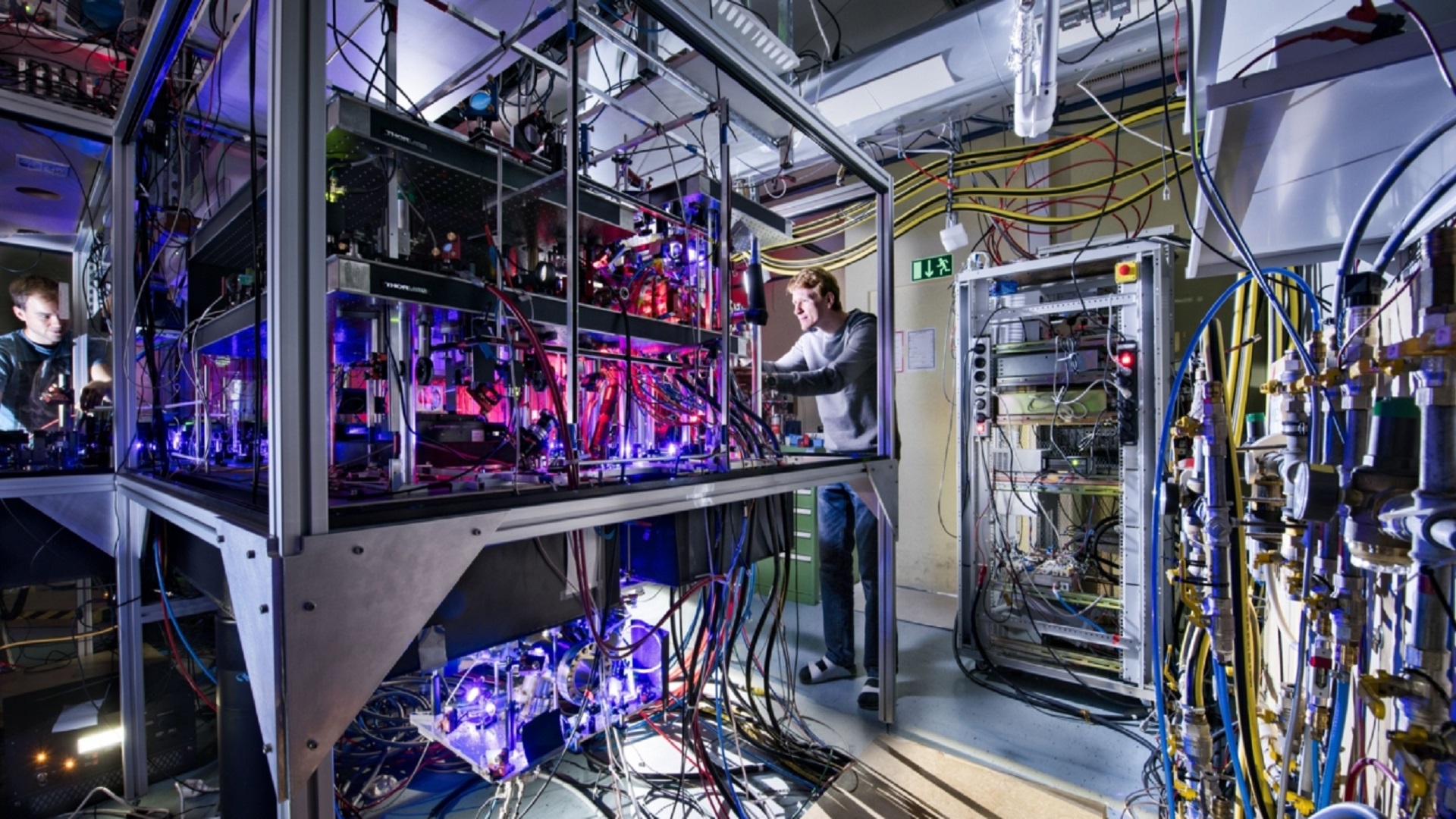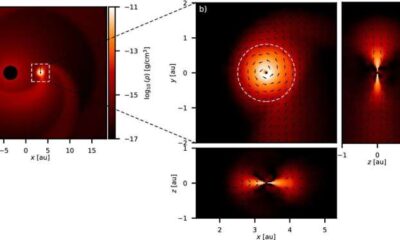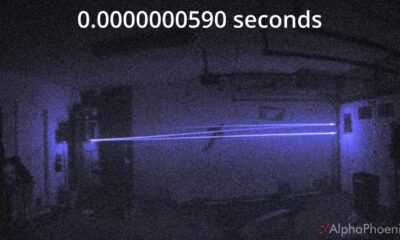Science
Researchers Challenge 200-Year-Old Physics Principle with Atomic Engines

A research team at the University of Stuttgart has made a groundbreaking discovery that challenges a long-standing principle in physics. Scientists Eric Lutz, a physics professor, and Milton Aguilar, a postdoctoral researcher, have demonstrated that the Carnot principle, established in 1824 by French physicist Nicolas Léonard Sadi Carnot, does not hold for atomic-scale systems. Their findings suggest that quantum systems can exceed efficiency limits previously thought absolute, potentially revolutionizing the development of atomic engines.
The Carnot principle, a cornerstone of thermodynamics, states that no heat engine operating between two thermal reservoirs can be more efficient than a reversible heat engine working between the same reservoirs. Historically, this principle has been applied to large, macroscopic objects like steam turbines. However, Lutz and Aguilar’s research indicates that it must be revised to account for phenomena occurring at the quantum level, where particles exhibit unique behaviors that defy classical physics.
According to the researchers, Carnot’s findings did not consider the effects of quantum correlations, which occur when particles interact in complex ways at extremely small scales. “Once you enter the quantum realm, where particles become correlated, the Carnot efficiency limit begins to crumble,” they stated. This understanding opens new avenues for developing thermal machines that can harness not only heat but also quantum correlations to generate usable work.
Implications for Future Technologies
The implications of this research extend far beyond theoretical physics. Lutz highlighted that the insights gained could lead to the creation of ultra-efficient quantum engines and nanoscale technologies. “Tiny motors, no larger than a single atom, could become a reality in the future,” he explained in a press release. The researchers believe this advancement could lead to engines capable of surpassing the maximum efficiency of larger heat engines, thereby transforming various technological fields.
The study, titled “Correlated quantum machines beyond the standard second law,” has been published in the journal Science Advances. It lays the groundwork for understanding how atomic-scale engines could be constructed and operated, potentially leading to innovations such as medical nanobots or machines that manipulate materials at the atomic level.
Lutz and Aguilar concluded, “The potential is enormously diverse.” As scientists continue to unravel the complexities of quantum mechanics, the prospect of harnessing these tiny engines for practical applications appears increasingly attainable. The team’s work not only expands our understanding of thermodynamics but also paves the way for future technologies that could significantly impact various industries.
With ongoing research in this area, humanity may soon find itself at the brink of a new technological era driven by the principles of quantum physics.
-

 Science1 month ago
Science1 month agoOhio State Study Uncovers Brain Connectivity and Function Links
-

 Politics1 month ago
Politics1 month agoHamas Chief Stresses Disarmament Tied to Occupation’s End
-

 Science1 month ago
Science1 month agoUniversity of Hawaiʻi Joins $25.6M AI Project for Disaster Monitoring
-

 Entertainment1 month ago
Entertainment1 month agoMegan Thee Stallion Exposes Alleged Online Attack by Bots
-

 Science3 weeks ago
Science3 weeks agoALMA Discovers Companion Orbiting Giant Star π 1 Gruis
-

 Entertainment1 month ago
Entertainment1 month agoPaloma Elsesser Shines at LA Event with Iconic Slicked-Back Bun
-

 World1 month ago
World1 month agoFDA Unveils Plan to Cut Drug Prices and Boost Biosimilars
-

 Top Stories1 month ago
Top Stories1 month agoFederal Agents Detain Driver in Addison; Protests Erupt Immediately
-

 Business1 month ago
Business1 month agoMotley Fool Wealth Management Reduces Medtronic Holdings by 14.7%
-

 Entertainment1 month ago
Entertainment1 month agoBeloved Artist and Community Leader Gloria Rosencrants Passes Away
-

 Politics2 months ago
Politics2 months agoNHP Foundation Secures Land for 158 Affordable Apartments in Denver
-

 Science2 months ago
Science2 months agoInnovator Captures Light at 2 Billion Frames Per Second










